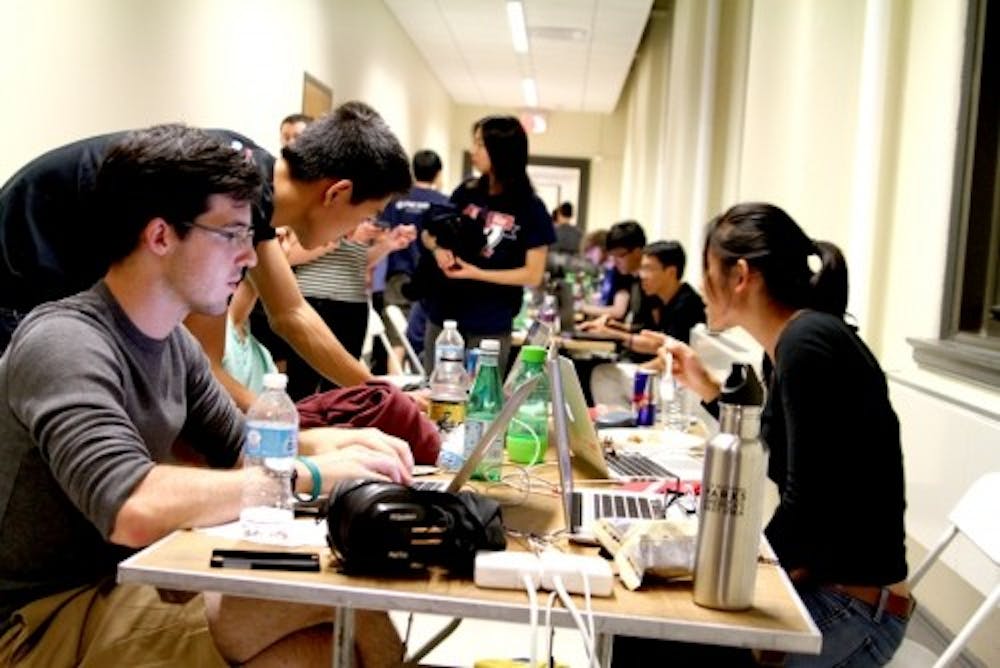The new year brings new additions to the winter PennApps hackathon competition.
Thousands of students from around the globe will meet onJan. 16 for a weekend-longcoding marathon to work towards solving real-world problems.
The most recent winning PennApps team, known as Fuji, developed software that allows users to stream iPhone simulations directly from a Macintosh computer, which can also be run in any browser that supports HTML5.
As the competitive hackathon lasts for around three days, hackers are bound to get over-worked and hungry. PennApps holds midnight food runs to Allegro Pizza and, new this year, a stress-relieving ice skating trip to the Penn ice rink, the Class of 1923 Arena,at midnight on Friday.
“Our hackathon is not crazy intense so there will be people there who want to learn and have fun as well,” said Camille Jwo, College sophomore and logistics organizer for the event. “The ice-skating trip is a good way for them to do that.”
Wharton school junior and student organizer for PennApps Simran Ahluwalia said he is excited to bring new sponsor mentors to this semester’s event and hopes that this year, the top 10 team demonstrations will be streamed live on the Twitch TV webpage to “open up the amount of potential viewers,” Ahluwalia said.
In the spring 2014 event, PennApps added a health portion to the competition, in which certain teams worked with Penn Medicine professionals and sponsors in the hopes of coming up with new-age solutions to an older health care system.
Last semester’s Health event produced a watch that automatically detected ifa person fell and contacted medical professionals if they did not respond in a certain amount of time, an app that was born from a hacker’s real experience with an older family member.
The health section carried over to this year. On Jan. 16a symposium will be held where health hackers can meet fellow hackers, sponsors and mentors to foster early brainstorming and discussion.
Hackers love their gadgets, and this year PennApps health is offering top-notch devices to the PennApps health coders as well, including an EEG device, which is used to diagnose things like sleeping disorders, that user can wear on their heads. Also offered are small sensors that can be attached to clothing, which detect walking and other movements.
“Uber uses data from Google Maps for their app, but our hackers don’t have access to medical data in this way,” said Mitt Coats, a medical student at the Perelman School of Medicine and an organizer for PennApps Health. “With these devices you could test patients with different seizure or sleeping disorders. You don’t need actual hospital data to build it.”
This event is crucial in bridging the gap between cutting edge coding, clinical medical professionals and insurance companies, like Blue Cross and Blue Shield, all of which are crucial in working towards innovative ideas that could improve health care.
Coats was pleased with how last semester’s competition went and is looking forward to bringing new additions to this week’s hackathon.
"This year we are bringing in many more sponsors and mentors from Penn Medicine,” Coats said. “Hopefully that will help people have more productive conversations about their ideas in the beginning of the event.”



